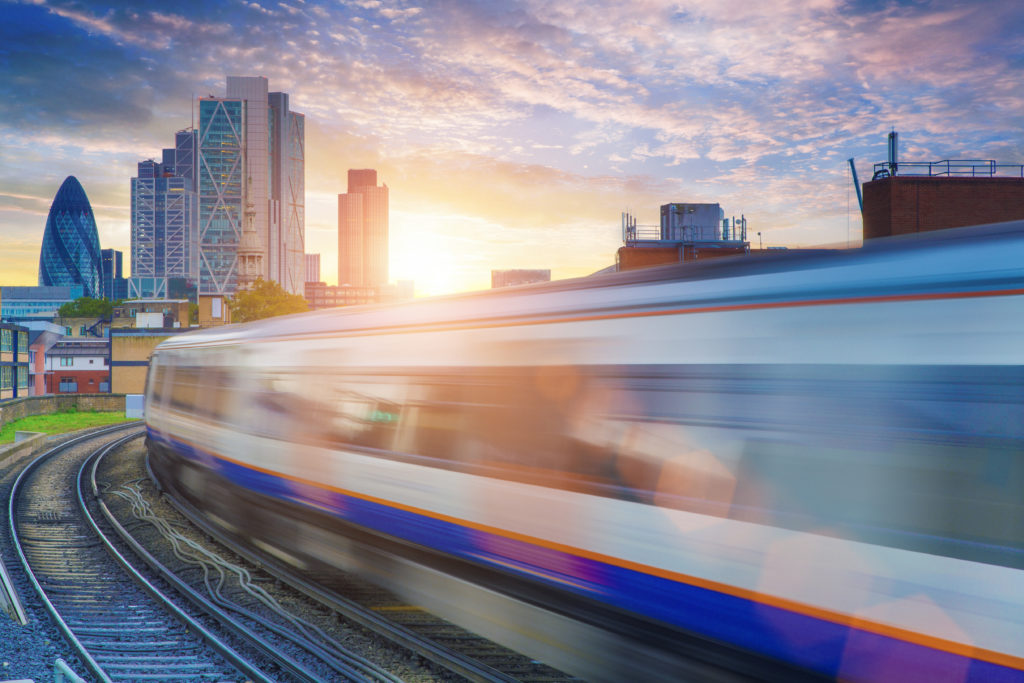European Parliament approves AFIR report: a major step forward towards the full decarbonisation of the transport sector
Brussels, 19 October 2022 – Today, the European Parliament plenary in Strasbourg approved - with a large majority - the report on the European Commission's proposal for the deployment of the Alternative Fuels Infrastructure Regulation (AFIR), one of the key files of the Fit for 55 package.
The European Rail Supply Industry Association (UNIFE) and the Community of European Railway and Infrastructure Companies (CER) welcome the remarkable efforts made by rapporteur Ismail Ertug and other members of Parliament over the past months which have enabled the European rail sector to proceed on a path towards full decarbonisation, and to lead the mobility green transition in the coming years. The AFIR proposal marks an opportunity to establish a European legal framework to support the deployment of alternative fuels infrastructures for rail, especially for those lines that are not mandated for electrification under the Trans-European Network – Transport (TEN-T).
The report that was approved today sets the following more ambitious decarbonisation targets for the rail sector:
► Asserts the key role alternative fuels will play in shifting away from the remaining fossil fuel-powered trains that are still in service
► Ensures an appropriate amount of alternative fuels infrastructure will be deployed in the TEN-T network segments where electrification is not possible or is not provided for in the TEN-T Regulation
► Commits to the use of the ‘energy efficiency first’ principle when deploying alternative fuels infrastructures
► Establishes that urban nodes and multimodal hubs are essential to fostering multimodality
The European Parliament's position defines a path for the full decarbonisation of the transport sector. Railways are already ahead in decarbonisation compared to the other modes of transport. Indeed, already 80% of trains/km run on electric energy and the rail sector is already testing a significant number of alternative green technologies to progressively substitute the remaining diesel locomotives.
Anticipating the upcoming trialogue negotiations, UNIFE and CER urgently call on Member States and the European Commission to endorse this parliamentary position and maintain the same level of ambition for the rail sector in the final text. We believe that decarbonisation of the European transport sector cannot be achieved without rail. In this respect, the deployment of rail alternative fuels solutions is set to play a key role in achieving the EU Green Deal targets.
Responding to today’s developments, UNIFE Director General Philippe Citroën stated that: “UNIFE applauds the European Parliament’s decision to approve more ambitious rail-related provisions within the framework of the AFIR proposal. The deployment of alternative fuels solutions in the rail sector is already a reality in many European countries and is set to grow even further in the coming years. This clearly shows rail suppliers and operators’ joint commitment to further contributing to the development of the zero emissions trains market in Europe. For this reason, an adequate European regulatory framework that reflects this growing market was very much needed.”
CER Executive Director Alberto Mazzola said “CER welcomes the adoption of the AFIR Report by the European Parliament. Rail is today the greenest means of transport for both goods and passengers and we are committed to further increase our contribution to reach EU environment goals. 80% of train kilometres already run today on electric energy but of course, as the report says, not all lines can be electrified. We need to progressively shift from diesel locomotives to green technologies but to do this we need access to a proper infrastructure for hydrogen. However, with the electricity prices tripled in one year and in some countries ten times higher than last year, railways as one of the biggest single consumers of electricity in Europe call today for urgent measures to correct the situation, among them making railways benefit from the windfall revenues to reduce the unit cost of rail electricity and prolonging the Track Access Charges reduction. We need urgent measures to block the reverse of modal shift."
| For more information: | |
| Andrei Ciufu UNIFE Head of Communications E: andrei.ciufu@unife.org T: +32 (0)2 626 12 64 |
UNIFE represents the European Rail Supply Industry in Brussels since 1992. The association gathers more than 110 of Europe’s leading large and medium-sized rail supply companies active in the design, manufacture, maintenance, and refurbishment of rail transport systems, subsystems and related equipment. UNIFE also brings together 13 national rail industry associations of European countries. For more information, visit www.unife.org or follow @unife on Twitter or on LinkedIn. |
| Cliona CUNNINGHAM CER Head of Communications E: cliona.cunningham@cer.be M:+32 (0)472 48 75 98 |
The Community of European Railway and Infrastructure Companies (CER) brings together around 70 railway undertakings, their national associations as well as infrastructure managers and vehicle leasing companies. The membership is made up of long-established bodies, new entrants and both private and public enterprises, representing 73% of the rail network length, 76% of the rail freight business and about 92% of rail passenger operations in EU, EFTA and EU accession countries. CER represents the interests of its members towards EU policymakers and transport stakeholders, advocating rail as the backbone of a competitive and sustainable transport system in Europe. For more information, visit www.cer.be or follow us on Twitter @CER_railways or LinkedIn. |
